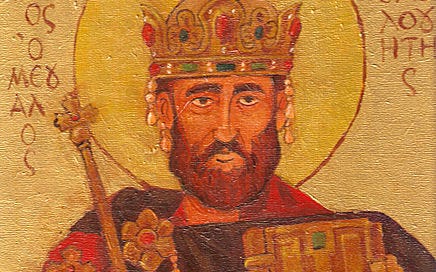Admire the Founders, Not the Conquerors
I don’t understand the @DeepLeftAnalysis🔸 admiration for Napoleon. This [Napoleon] is a man who destroyed. He destroyed institutions in France and other countries, his empire was completely unsustainable and collapsed and his legacy was the corruption of French institutions for years to come. Same goes for Alexander the Great in some ways.
Yes, Napoleon did at least provide some stability for the French, but I don’t think that was really him — Burke predicted in 1790 that a military dictatorship would end up happening as the military was the only stable institution left with any power following the revolution. What didn’t need to happen with a military dictatorship was a killing rampage that amounted to nothing.
Great Britain did a great service to the world in being instrumental in stopping this man whose only vision was power for its own sake.
The figures of history we should admire are those who built things. Even Caesar counts better for this. Yes, he overthrew the Republic (although it was already pretty stuttering then anyway) and yes he was in many ways brutal, but his conquests at least translated to the expansion of what was then civilisation. He was in many ways a terrible force, but there was greatness there. Napoleon and Alexander merely upset the apple cart.
Napoleon comes in, takes over most of Europe, destroying the old civilisations, and then falters, leaving remaining European powers to pick up the pieces. Alexander, in having no clear succession, destroyed the great Persian Empire and left chaos in his wake. These are not at all examples.
Caesar is a far better example of a conqueror who could be admired, although even he left instability in his wake until Augustus managed to piece the ship together.
I think we really ought to avoid buying into the myth and grandeur of the conquerors. Caesar cried before the memory of Alexander for the scale of Alexandrian achievement, yet I see no good lasting achievement from Alexander. ‘Great’ figures try to do as much as possible in the pursuit of power today and memory tomorrow, but all we have of Alexander is the awe of the story of the scale of his conquests (which really amount to the singular achievement of taking out the Persians— stunning, yes, but also a product of the military dysfunction of the Persians).
Caesar is better than Alexander because at least his expansion of civilisation left a lasting legacy. Although Rome would eventually fall, paving the way to Pax Romana (in terms of wealth and security through strength, even if not in terms of internal stability in succession) arguably amounts to paving the way for the achievements of that period. We still rely on various innovations and thought from that period.
Even better however, would be to lionise people for more than being highly . disruptive. This kind of lionisation culminates in Boris Johnson speaking fondly of ‘chucking rocks’ and hearing ‘this amazing crash from the greenhouse’. We should revert to lionising figures who built great things, including in statecraft. In the English context, Alfred is an obvious example. This is a man who established vast scholarship (founding the precursor to Oxford University), strong rule of law and a code of laws drawing on both Christian and Anglo-Saxon traditions. He made a nation through repelling an invasion. In the Welsh context, Hywel Dda comes to mind — a man who for a time created peace and relative prosperity amidst various competing Welsh principalities and severe external pressures. I think something America has done beautifully is its admiration for founding fathers.
And the great upshot of someone like Alfred is that his legacy is clearly with us today. The Anglosphere has benefited from the legacy of scholarship, rule of law and legal conventions drawing on both Anglo-Saxon and Christian norms with an eye to the social good. That is behaviour that both deserves to be extolled and that leads to a properly lasting legacy.
We should lionise those who founded, not those who merely disrupted.



